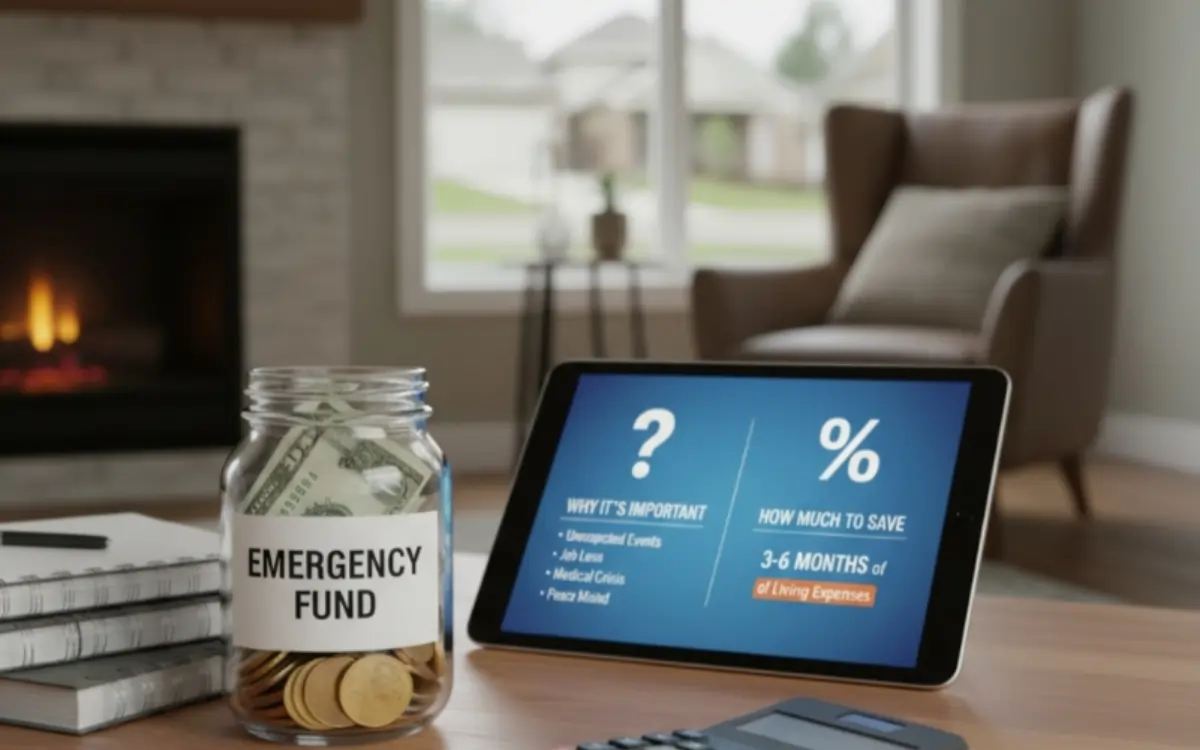An emergency fund is simply money kept aside to handle unexpected expenses. It acts like your personal financial safety net. Let’s understand why it is important and how much you really need.
Life is full of surprises, sometimes they are good, and sometimes they bring sudden expenses like a medical bill, car repair, or even job loss. In such situations having an emergency fund can save you from stress and financial trouble.
Why an Emergency Fund is important for us
There are some important reasons that why we need emergency fund.
- Emergency fund protects us from debt-When we don’t have enough savings then we often use credit cards or take loans during emergencies so this creates debt and adds interest burden that is why an emergency fund saves you from this trap.
- Emergency fund gives us peace of Mind-Sometimes, when we realise that we have money set aside gives us confidence. You do not have to panic when something unexpected happens.
- Emergency Fund helps us during job loss-Suppose if we have lost their job and don’t have emergency funds the we got finance stressed and our survival can be difficult so if we have ab emergency fund in this situation then emergency fund helps us to pay rent, bills, and groceries until we find a new job.
- Emergency Fund and medical emergencies-Uncertainty is real like health issues can come suddenly and medical treatment is often costly. Even if you have insurance some expenses are not covered. An emergency fund fills this gap.
- Emergency Fund avoids breaking long term Investments-If you do not have emergency savings you may be forced to withdraw money from retirement plans, mutual funds or fixed deposits. This harms your future financial growth.
How much emergency fund do you really need?
So there is no one fixed amount for everyone because it depends on your lifestyle, income, and expenses. But experts usually suggest:-
Minimum emergency fund: At 3 months of your basic expenses hold as emergency fund but Ideal is that around 6 months of your basic expenses hold as engency funds.
Best Practice if your job or income is unstable, keep 9–12 months of expenses as engency funds.
For example:If your monthly expenses are Rs.30,000 then minimum fund that you need to hold as emergency fund Rs. 90,000 and if hold Rs. 1.8 lacs so it is ideal moreover if talking about safest and practice then you need to hold Rs. 2.7 to 3.6 lacs.
Where to keep your Emergency Fund?
Always our emergency fund should be safe It should not lose value and easy to access means we should get money quickly when needed.
I think an savings account or fixed deposit with easy withdrawal option shall be good option.
Read More:-
Today Gold Prices in India: Live rate for all types of Gold.
India’s public sector banks are on track for global recognition by 2047
How to build your emergency fund.
To build the emergency fund we can start saving from our salary in small amount in every month moreover we can automate savings like set up auto transfer from your salary account.
And use bonuses, tax refunds, or extra income to boost your fund. Avoid touching it for normal expenses while se it only for real emergencies.
Conclusion:-
So guys An emergency fund is not just savings, it is financial security for you and your family that is why everyone need to start building it today, even if you can save only a small amount step by step you will reach your target. Remember, life is uncertain, but with the right preparation, you can handle any situation with confidence.
